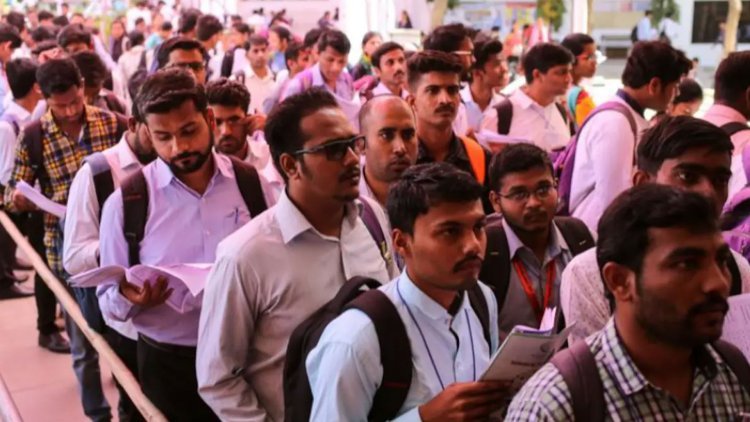India needs to create jobs if it wants to become a superpower
It will be very difficult for India's military to act as a means of both generating jobs and projecting power at the same time.

India's attempt to reform military recruitment has sparked political unrest that doesn't appear to be abating, proving that its ambitions to become a powerhouse are incompatible with a weak economy.
India's military, and its army in particular, is overstaffed and has an outdated organisational structure. The administration discovered it was spending all of its military budget on personnel, leaving very little for modernization or for gear after some foolish, populist, and expensive fiddling with pensions early in its tenure.
Meanwhile, its own planners have been advocating for a younger and thinner force for more than 20 years. The typical soldier in India is 32 or 33 years old, making it one of the oldest militaries in the world.
The government consequently announced it was switching to a tour-of-duty type system in which new recruits will be taken on for four years and then sent off with a handsome and tax-free discharge bonus of $15,000. This came after two years during which the army suspended its customary annual enlistment of 60,000 young men on 20-year contracts.
A protest firestorm has been ignited as a result. In some instances, potential army recruits literally set trains on fire, making the Union government's insignia evident even in the most rural areas of India.
The issue is that the army is sometimes the only option for young men in India's poorest regions when it comes to pursuing a job or even finding a spouse, as a result of years of sex-selective abortions that have made those regions' gender ratios disproportionately male.
These men—or boys, because most of them are teenagers—have spent years running and honing their selection drills.
A typical applicant told a reporter for the Print before to the announcement of the new recruiting process: "If I don't acquire a position in the army, my chances of living with dignity in my society are quite low. My prospects of getting married decline. People will make fun of me everywhere. On the other hand, those who do return to their villages after serving for 20 years typically gain respect and end up in leadership roles within the community.
It is significant that the protests and the outrage have generally been confined to India's most underdeveloped regions, where other work options are few. The government has made an effort to highlight the $15,000 payoff the four-year men would receive and has asserted that their military training will make them more marketable. In locations where there is little chance of finding a solid job now or in four years, this argument has less power.
By hiding its true intentions, the administration has done itself no favours. Everyone is aware that the goal is to lower military spending on salaries while also generating a younger, more technologically nimble army. The government also refuses to discuss its plans for changing the military.
We don't even have a firm estimate of how many people are currently employed by India's military, never alone how much money the programme will save. That's treated as a state secret for some reason. (It is predicted to be close to 1.4 million, or around half as many as in China.)
The perception is that Prime Minister Narendra Modi has a natural intuition for what voters want. Yet it's amazing how frequently his government creates policies in secret that later provoke an indignant public response. Even while it was unavoidable and long overdue, military reform could have at the very least been debated in public so that the current generation of aspirants would have known better than to run miles every day to be in shape.
There is a possibility that the administration will be forced to retreat in the face of this persistent hostility in regions that continue to be politically strong, despite their economic weakness, similar to farmer-led protests from the previous year.
But reversing course would come at a price. An aspiring superpower should use its military as a tool to project power, guarantee domestic security, and counter new threats. India is discovering that, given its inability to generate jobs, its army must also continue to serve as a means of doing so. The nation must first restore its economy if it hopes to play a larger role in the region and the world.




 admin
admin 




















